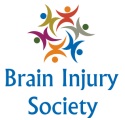
A brain injury often leaves the victim with some level of cognitive impairment. Memory problems are common; disturbances in the ability to focus attention, communicate, and manage daily life can leave a person unable to function normally without help. New apps are being created to assist these patients in keeping track of daily life tasks, as well as repair memory functions. One of the most recent apps to be developed was created by a team of homeschool students from Mt. Washington, Kentucky. The young people in the winning team ranged in age from 12 to 15, as reported in the Courier-Journal.
The award-winning app gives users a series of games that address memory, attention and mental processing, with the goal of helping a victim redevelop pathways in the brain that would eventually allow the person to drive a vehicle. The game has driving simulations and distraction challenges to overcome, among other features. This app is just one of many on the market that have proven to be an invaluable tool in rehabilitation.
When the brain is injured, the outcome for the patient can be uncertain. While some patients recover completely, others may never completely recover, and doctors find it difficult to give families a prognosis after a serious brain injury. The process of rehabilitation can take many months, years, or longer. Any technological advance that promises to give patients tools that will increase the speed of the process is of great benefit in the rehabilitation process.
When the brain is injured, the neurological pathways are disrupted, and the electrical impulses that once travelled a certain route must be rebuilt. A person with a serious TBI may have to relearn all basic functions, including how to walk and communicate. The neurological pathways are now rerouted through undamaged areas of the brain, and the person, over time, can regain all these abilities in many cases. Memory is one of the more difficult of the problems faced by TBI sufferers.
Apps that retrain the memory through a specific series of actions could more quickly resolve these issues for patients. Brainline.org reports on these apps and how they can assist TBI patients, as well as caregivers and medical professionals. One such app uses card games to improve memory, getting the user to find matching cards as in the classic card game “concentration.” Another uses flash cards and includes a built-in dictionary. Many other apps are on the market that are valuable for patients who are on the mend, including a simple YES/NO app which is often the first stage of recovery. These apps assist in rehabilitation, and offer new hope to those who are living with some level of cognitive impairment after an injury in a fall or car accident, or other impact that injured the brain.
